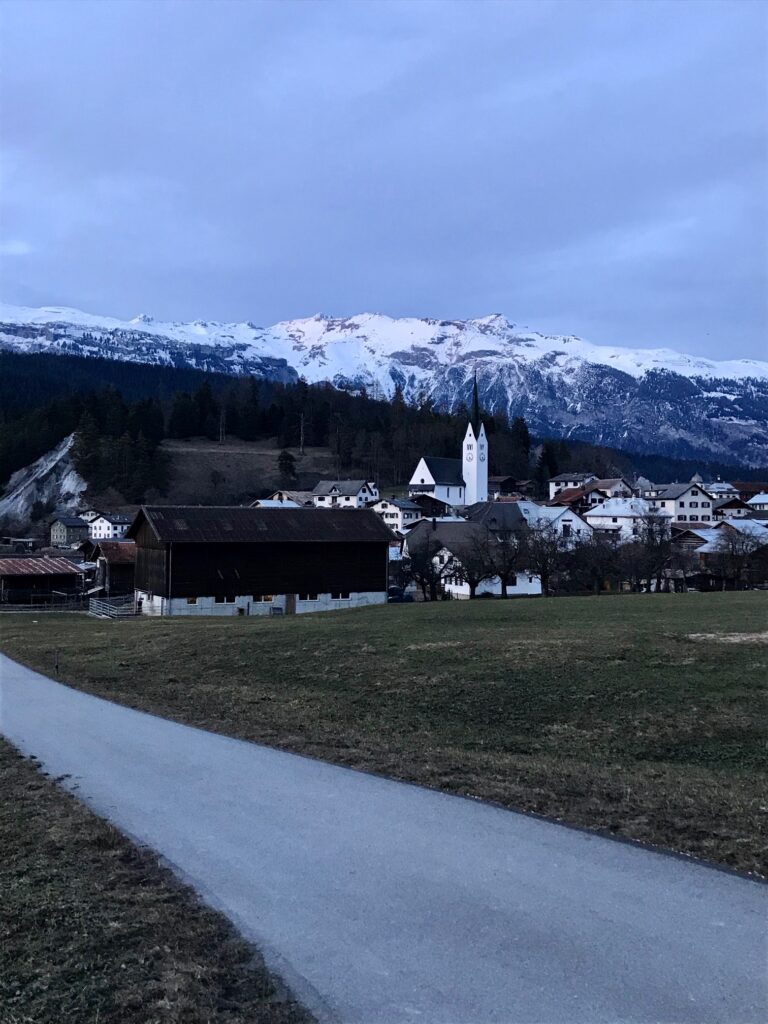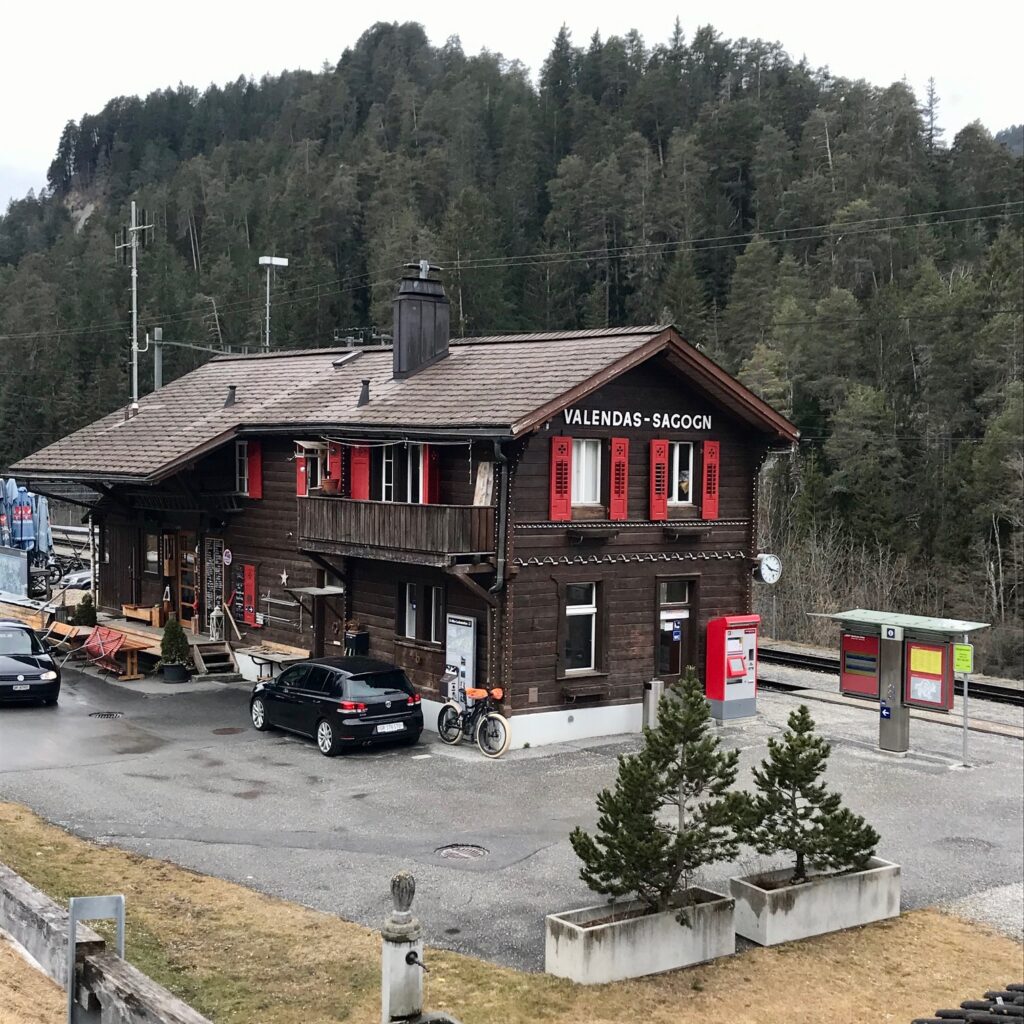Writing can so often be a lonely endeavor, but during a recent Global Horizons writing retreat up in the quiet mountain village of Valendas, it was anything but that. Housed in a seventeenth-century townhouse (with multiple wall paintings intact!), we spent a few days writing, talking about writing, and setting goals for the coming semester and year. We also found time to have delicious communal meals and take walks around the village, characterized by its dramatic views of the Rhine, snow-capped mountains, and dairy farms.

We arrived on Saturday and kicked off the retreat with a discussion about issues we individually faced with our current writing projects, whether dissertations, books, articles, or conference papers. There was admittedly something deeply comforting (and even cathartic) about sharing our challenges and learning that we all face similar difficulties. So often, we tend to think that we are alone in our struggle to write; this is, of course, far from true. Coping with writer’s block, finding time to write, resisting distraction, and managing writing-related anxiety were all common problems voiced by members of the GH team.
After taking turns naming the challenges we face when writing, we began to think in terms of strategy: what are our different tricks, so to speak, in overcoming these difficulties? I found myself taking lots of notes during this part of Saturday’s and then Sunday’s group meetings. For some, beginning the day with a timed session of free writing was a way to get into one’s work and overcome the initial anxiety that many of us face each time we open our current project; for others, creating a realistic ‘to-do’ list the night before is crucial for a productive writing session the following day. Other tips include writing in 25-minute spurts that are each focused on a particular question or problem; planning rewards in addition to writing goals each day; and keeping all writing for a single project within one word document (so that nothing gets lost!).
An additional point of discussion was the place of conferences in relation to our writing projects. Some apply to conferences with the idea that, if accepted, the conference will be the opportunity to develop projects otherwise not yet begun; for others, conferences are for work that has already been carefully thought through. Although sometimes our strategies differed, we all agreed that formal analysis can be an excellent way to overcome writer’s block: simply pull up the image that interests you the most in your project, and begin writing about that. Writing, in this way, can be a form of thinking, and it is through the process of writing that many figure out what they want to say about their objects.
These meetings, however important, were of course not the primary way we spent our time in Valendas. On Sunday, the first full day of the retreat, we had breakfast at 8 am and then promptly found different rooms within the house, many of which were filled with long tables perfect for communal writing, and settled in with our laptops for the day, taking breaks only for meals and an occasional walk. I personally had one of the most productive writing days that I have had in a while—there was something deeply motivating about working alongside other pre-modernists in a space to which we had traveled for the sole purpose of writing. Learning that we all experienced similar personal and intellectual challenges viz. our own projects and sharing tips on how we could all be more satisfied with our work was at once edifying and empowering. I am trying to remember what I learned in those few days in Valendas as I continue to write—albeit now in a much more isolated state, given the Coronavirus outbreak—and recall that we are not alone in the challenges we face, personally and intellectually, as academic writers.
